Noise
Noise is defined as unwanted sound that is loud, disruptive, or unpleasant to the ears. It can have negative effects on human health and well-being, as well as on the environment.
Sources of Noise
Noise can come from a variety of sources, including:
- Traffic
- Construction sites
- Industrial machinery
- Household appliances
- Recreational activities (e.g., concerts, sporting events)
Effects of Noise
Noise pollution can have several negative effects, including:
- Hearing damage
- Stress and anxiety
- Sleep disturbances
- Interference with communication
- Impact on wildlife and ecosystems
Measuring Noise
Noise is measured in decibels (dB). The higher the decibel level, the louder the noise. Exposure to noise levels above 85 dB for an extended period of time can cause hearing damage.
Ways to Control Noise
There are several ways to control and reduce noise pollution, including:
- Using sound barriers and insulation
- Implementing noise regulations and zoning laws
- Using quieter technologies and equipment
- Creating green spaces to absorb and block noise
Study Guide Questions
- What is the definition of noise?
- List three sources of noise pollution.
- What are the negative effects of noise pollution on human health?
- How is noise measured, and what is the unit of measurement?
- What are some ways to control and reduce noise pollution?
◂Science Worksheets and Study Guides Eighth Grade. Organic compounds
Study Guide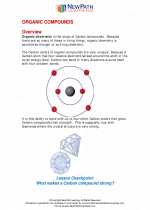 Organic compounds
Organic compounds  Worksheet/Answer key
Worksheet/Answer key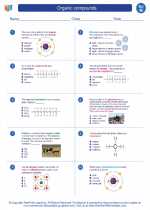 Organic compounds
Organic compounds  Worksheet/Answer key
Worksheet/Answer key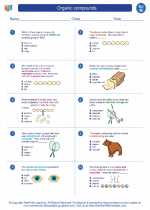 Organic compounds
Organic compounds  Worksheet/Answer key
Worksheet/Answer key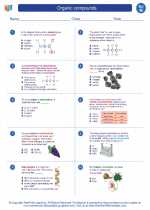 Organic compounds
Organic compounds  Vocabulary/Answer key
Vocabulary/Answer key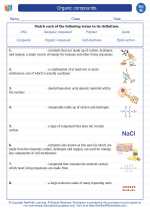 Organic compounds
Organic compounds  Vocabulary/Answer key
Vocabulary/Answer key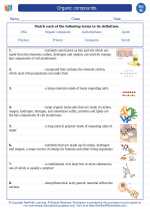 Organic compounds
Organic compounds 

 Worksheet/Answer key
Worksheet/Answer key
 Worksheet/Answer key
Worksheet/Answer key
 Worksheet/Answer key
Worksheet/Answer key
 Vocabulary/Answer key
Vocabulary/Answer key
 Vocabulary/Answer key
Vocabulary/Answer key

The resources above cover the following skills:
Physics: Students will use scientific skills and processes to explain the interactions of matter and energy and the energy transformations that occur.
Thermodynamics: Identify and explain that heat energy is a product of the conversion of one form of energy to another.
Identify and describe the various forms of energy that are transformed in order for systems (living and non-living) to operate: Chemical - Flashlight-Light; Mechanical - Pulleys-Motion; Solar/Radiant - Solar calculator; Chemical - Plant cells.